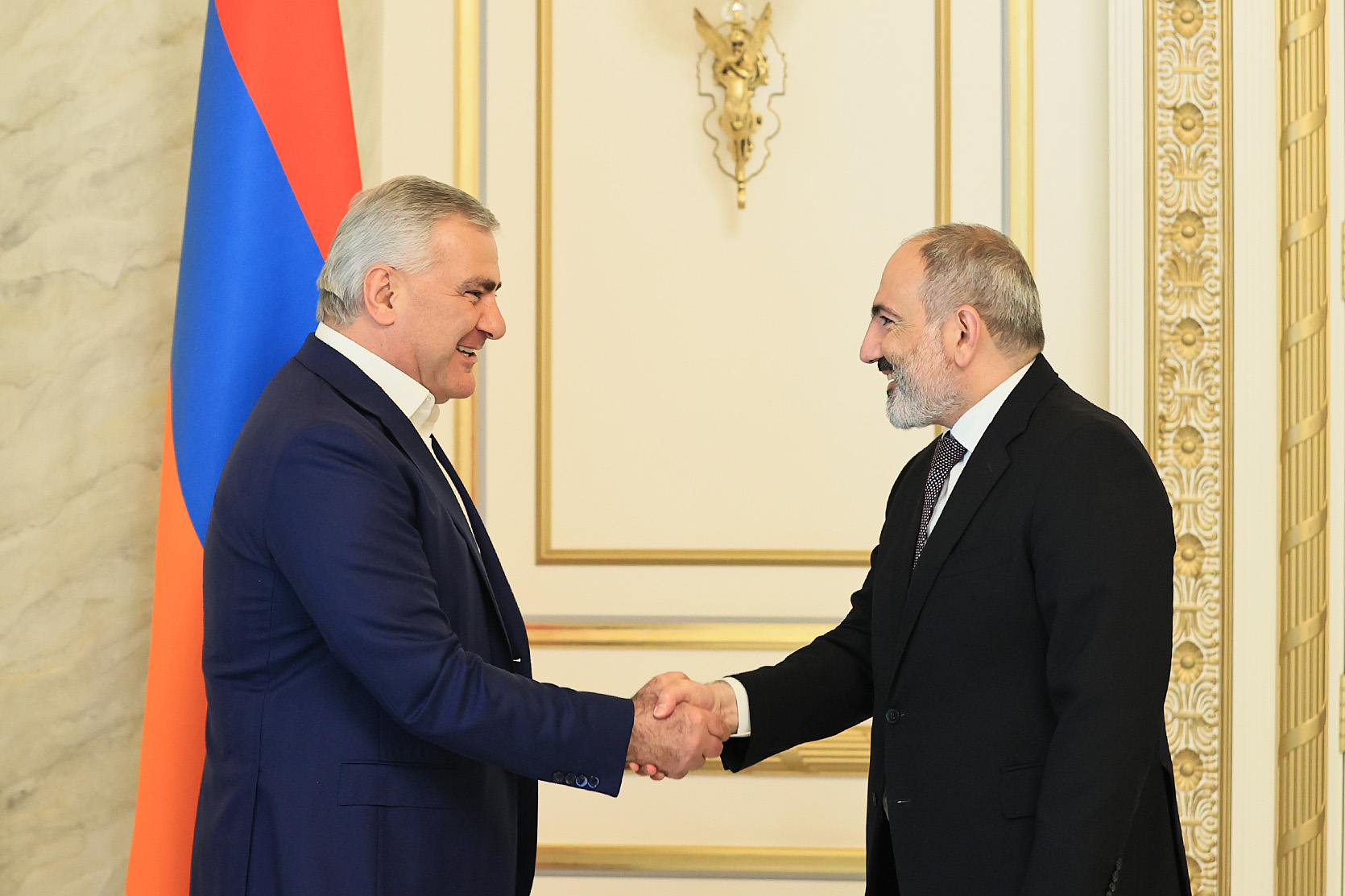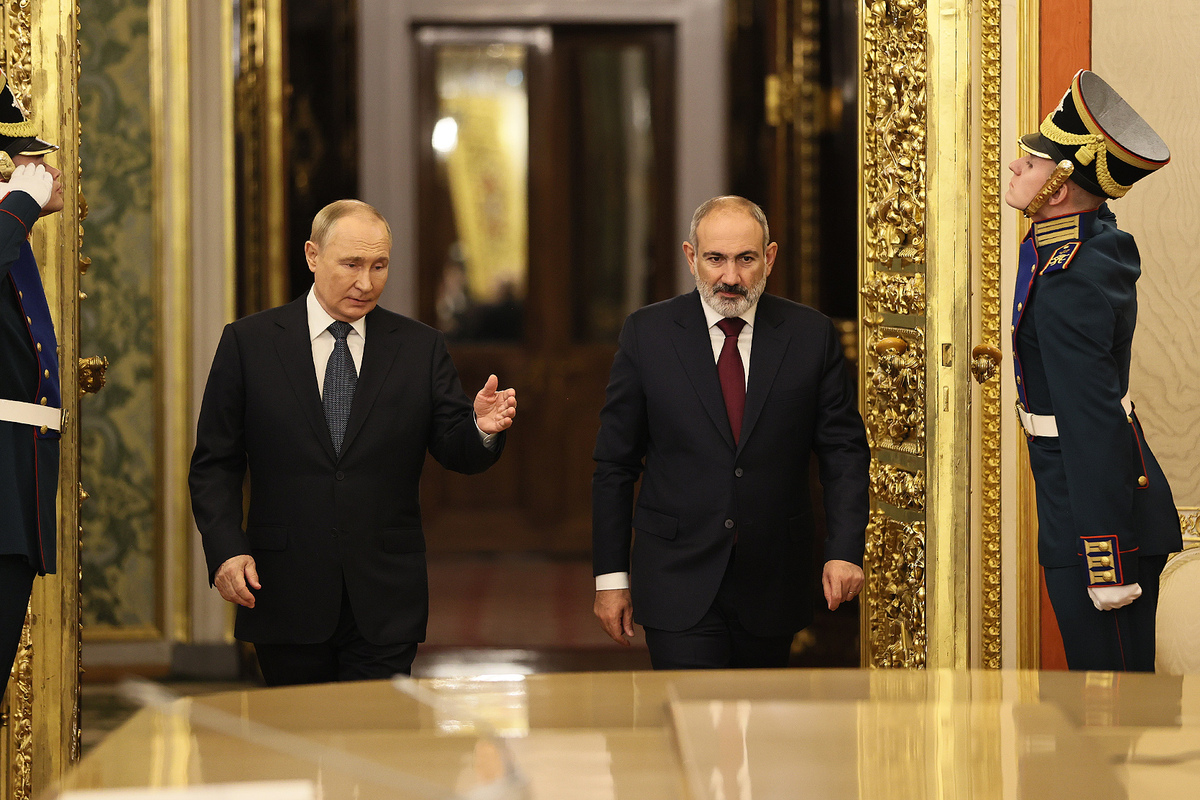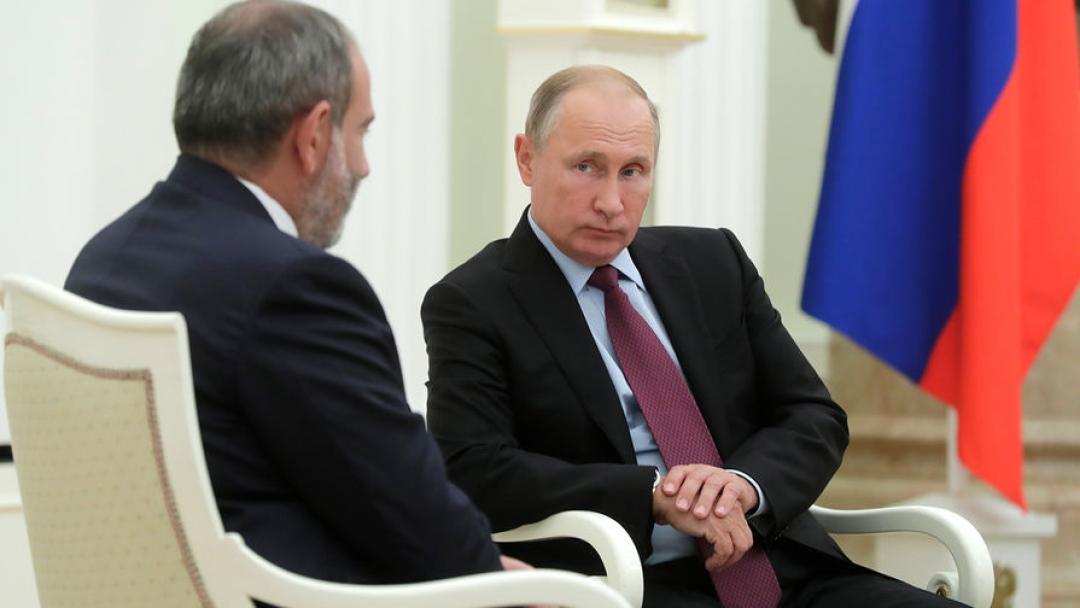Moscow attempting ‘Ivanishvili 2.0’ operation in Armenia, says analyst
Arrest of Samvel Karapetyan
The arrest of Russian-Armenian businessman Samvel Karapetyan has become a major topic of discussion in Armenia. Last week, a Yerevan court ordered Karapetyan’s pre-trial detention for two months following the launch of a criminal case linked to remarks he made in a media interview. He is accused of publicly calling for the overthrow of the Armenian government and the usurpation of its powers.
Moscow has issued a series of statements in response. Officially, the Kremlin has said it is “closely monitoring the situation” surrounding the arrest of Russian citizen Samvel Karapetyan.
Armenian Prime Minister Nikol Pashinyan stated there is a “high probability that certain circles in Russia are behind these hybrid operations and this hybrid war.”
Political analyst Robert Ghevondyan drew parallels with Georgia, where Russia is widely believed to have backed Bidzina Ivanishvili as an informal power broker. According to Gevondyan,
“It appears that new actors involved in Moscow’s regional coordination have decided not to reinvent the wheel and are following a familiar path — launching an ‘Ivanishvili 2.0’ operation, this time in Armenia.”
The grounds for Karapetyan’s arrest were his comments in an interview with Armenian journalists about the growing tensions between the state and the church. The billionaire businessman said: “If Armenia’s political forces fail to resolve this situation, we will have to intervene in our own way in the campaign against the Church.” Authorities suggested the phrase “in our own way” could imply the threat of armed action.
Karapetyan’s legal team insists his comments were about reconciliation, not violence, and claim he is the target of political persecution. They have denounced the arrest as unlawful.
Karapetyan is a major shareholder in Electric Networks of Armenia, acquired by his firm Tashir Capital in 2016. Prime Minister Pashinyan has suggested it is no coincidence that Karapetyan’s political statements intensified shortly after the government ordered an audit into the company’s past losses, with the option of nationalisation if compensation is not provided.
- Lavrov in Yerevan: Traditional diplomacy, untraditional atmosphere
- “Get out of Armenia”: Valentina Matviyenko met with protest in Yerevan
- ‘Some countries oppose Armenia becoming Russia’s backyard’: Debates in Yerevan
“What did authorities achieve?” – Karapetyan speaks out on social media
On the day of his arrest, a Facebook page titled “Committee for the Defence of Samvel Karapetyan” appeared, declaring its purpose to be the fight against his “unlawful persecution.” In recent days, Karapetyan’s legal team has been posting his personal statements on the page, addressing his arrest and the broader political situation in Armenia.
In the posts, Karapetyan claims that “independent courts will soon emerge, and justice will be restored.” He also alleges that his arrest was made “at the request of the president of a neighbouring country [Azerbaijan],” noting that four years ago, on the same date — 18 June — Azerbaijan issued an international arrest warrant for him.
According to the businessman, Armenia’s leadership has:
- “Succeeded in completely dismantling the country’s external security,
- ruined relations with its main ally [referring to Russia],
- destroyed ties with all military partners [likely the CSTO, led by Russia],
- and sold the public illusions about ‘crossroads’ [a reference to the government’s ‘Crossroads of Peace’ programme] and dreams of peace.”
Summing up, Karapetyan stated:
“As a result, several axes now hang over our country: Turkey, Azerbaijan, and even Pakistan. We lost Artsakh — Armenian Artsakh, with its unique thousand-year historical value, preserved through bloodshed. And after that, under cheap and false promises of a peace treaty, the phased surrender of the Republic of Armenia’s territory began. They destroyed the armed forces. After all these losses and destruction, the only defence left at our borders are binoculars in the hands of a few vague individuals [a reference to the EU civilian monitoring mission].”
Karapetyan added that “external security will soon be restored, and dignity returned.” However, he did not specify how or with whose support he expects this to happen.
Russia signals readiness to assist Karapetyan
Kremlin spokesperson Dmitry Peskov said Moscow is prepared to support Samvel Karapetyan, noting that Russia is closely monitoring the situation.
“Of course, we are following the case. For us, he is a Russian citizen. We do not wish to interfere in Armenia’s internal affairs, but we are, of course, watching everything related to a Russian national with the utmost attention,” Peskov stated.
Earlier, Foreign Ministry spokesperson Maria Zakharova said that assistance would be provided to Karapetyan if he or his lawyers formally requested help through the Russian embassy.
“National disgrace” – Robert Kocharyan on Karapetyan’s arrest
Former Armenian President Robert Kocharyan condemned the arrest of Samvel Karapetyan, calling it “yet another disgraceful act by a puppet judiciary.”
“This is a national disgrace — when a prominent investor and philanthropist, whose contributions are evident both in the diaspora and in Armenia, is thrown into prison without grounds. Simply for standing up in defence of the Armenian Apostolic Church,” Kocharyan wrote on Facebook.
According to the former president, the only solution to the current crisis is a change of government:
“Otherwise, we are rapidly descending into full-scale dictatorship, with unpredictable consequences for our statehood. […] I am confident that the time is approaching to put an end to all anti-national and unlawful actions.”
Authorities seek to prevent public mobilisation, says opposition MP
Tigran Abrahamyan, secretary of the “I Have Honour” parliamentary faction — led by former president Serzh Sargsyan — said the arrest of Samvel Karapetyan appears aimed at preventing possible public mobilisation around the Church.
“This will achieve nothing,” Abrahamyan said. “The language and actions the authorities are using in their campaign against the Church are not beneficial to them under any scenario.”
According to him, the government is acting based on domestic political calculations and is seeking to “remove anyone who might stand in their way.”
Expert commentary
“Armenia is trying to navigate the ongoing geopolitical developments with minimal losses. After the loss of Nagorno-Karabakh and Azerbaijan’s provocations, it became clear that the existing security system was no longer reliable amid shifting global conditions. Armenia has made the decision to search for and implement alternative options for ensuring its security.
At the same time, these events have had a significant impact on the balance of power in the region. Russia has lost its decision-making dominance. As a result, other regional and geopolitical players have moved to expand their share of influence. Such a turn of events does not align with Russia’s interests or its vision for the region.
As it did years ago in Georgia, Moscow now sees the decline of its influence in Armenia as an “infringement on its rights.”
To counter Georgia’s Western tilt and bring it into Russia’s sphere of influence, Moscow sent Georgian-born oligarch Bidzina Ivanishvili there years ago. There, operating within the existing democratic framework, he built a “controlling stake” of political influence. When, in Moscow’s view, the right moment came, Ivanishvili “revealed his cards.” He began working in Russia’s interests, weakening Western influence in the country.
Although the Ivanishvili operation cannot be considered a complete success for Russia, Moscow apparently views the scheme as effective. This may explain another similar attempt — this time, a Russian oligarch of Armenian origin, Samvel Karapetyan, was dispatched to Armenia.
Amid tensions between Armenian authorities and senior church leaders, Samvel Karapetyan made sharp statements and was subsequently arrested. Calls for his defence followed immediately after the arrest. These included statements from various public figures and politicians based in Russia and aligned with Russian interests in Armenia. There were also calls to oppose the authorities and narratives—both real and fictional—shaping Karapetyan’s image.
If we compare this to Ivanishvili’s emergence in Georgia, the political tactics are too similar to be considered a coincidence.
Will Russia succeed in halting the process of restoring the sovereignty of the Republic of Armenia? That will depend on the level of resistance within Armenian society and the determination of its leadership. However, this marks yet another difficult test on Armenia’s path to independence — one already marked by years of hardship.”





















